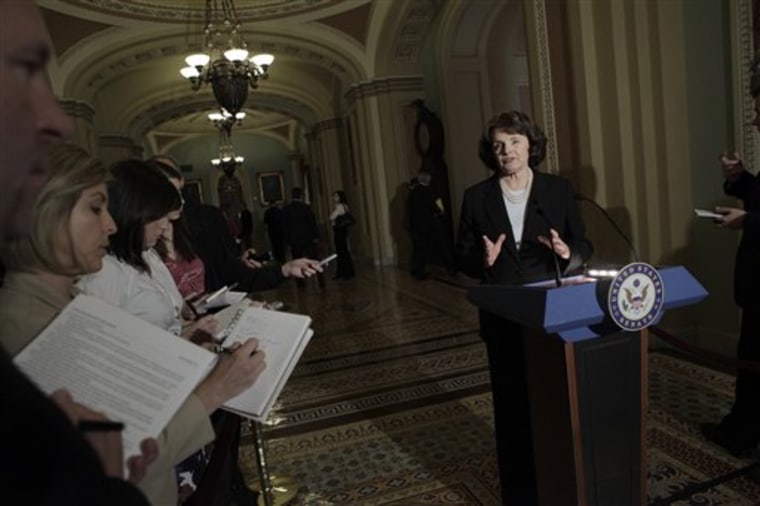Sen. John McCain, who fought the Bush administration on its harsh interrogation policies, says he thinks it would be counterproductive to now seek the prosecution of officials who said the tactics were legal.
McCain long has insisted that terrorism-era interrogations of suspects and detainees must strictly follow procedures outlined in the Army field manual and had to comply with the Geneva Conventions.
But in an interview Thursday on CBS's "The Early Show," the Arizona Republican said any move to reopen the political controversy surrounding the previous administration "would have a chilling effect" on any kind of advice that legal counselors give to presidents.
McCain charged that any such move by the Obama administration or majority Democrats in Congress would turn the issue into "a witch hunt."
'The needs to be a public accounting'
Senate Democratic leaders don't appear inclined to appoint an independent panel to investigate the Bush administration's interrogation program before the Senate Intelligence Committee completes its own probe near the end of the year.
The panel is investigating the legal underpinnings for the interrogation program as well as the value of the information it gathered. Republicans oppose the creation of a bipartisan commission for what they view as a backward-looking effort to vilify former President George W. Bush.
"One way or another there needs to be a public accounting of these troublesome policies," said Senate Majority Leader Harry Reid, D-Nev. Reid said the committee inquiry "will answer a lot of the questions the American people have."
Two Senate reports issued back to back this week were meant to answer some of those questions.
A Senate Armed Services Committee report draws a direct line between the Bush administration's approval of the CIA's harsh interrogation program and the military's abuse of prisoners at the U.S. naval base at Guantanamo Bay, Cuba, and in Afghanistan and Iraq.
The Intelligence Committee issued a newly declassified narrative of the legal guidance provided to the CIA that allowed the secret detention and interrogations to go forward.
As early as April 2002, the narrative states, the CIA sought permission to use waterboarding — a form of simulated drowning — to break the resistance of a newly captured alleged terrorist, Abu Zubaydah. Permission came that July, delivered personally by the president's national security adviser, Condoleezza Rice, to CIA Director George Tenet.
Holder on the Hill
Meantime, Attorney General Eric Holder told Congress on Thursday he won't play "hide and seek" with secret memos about harsh interrogations of terror suspects.
In testimony before the House Appropriations Committee, Holder said he's willing to release as much information as possible about the interrogations.
Several members of the committee pressed him about the Justice Department's release last week of four long-secret legal memos detailing the harsh techniques used on some detainees during the Bush administration.
"It is certainly the intention of this administration not to play hide and seek, or not to release certain things," said Holder. "It is not our intention to try to advance a political agenda or to try to hide things from the American people."
Republicans — including former Vice President Dick Cheney — have urged the Obama administration to release other, still-secret documents detailing what intelligence was gained from the controversial interrogation techniques.
Holder said he wasn't sure exactly which memos Cheney is referring to, because he hasn't seen them. The attorney general suggested such classified documents may exist at other agencies.
Any attempt by Democrats to gain political advantage from an investigation could be tempered by a memo from National Intelligence Director Dennis Blair, who privately told employees last week that "high-value information" was obtained in interrogations that included harsh techniques, though he deemed them unacceptable and counterproductive.
